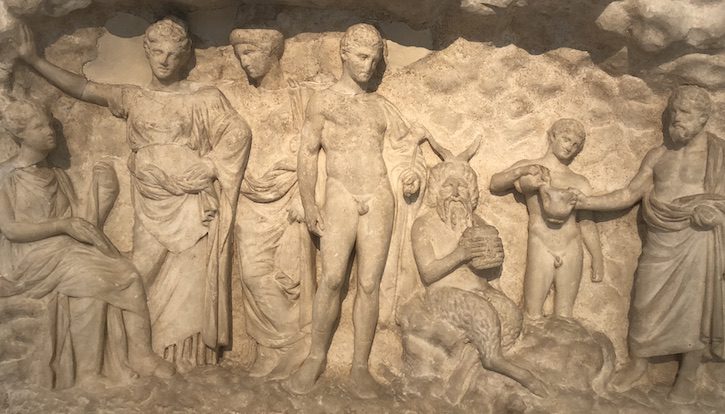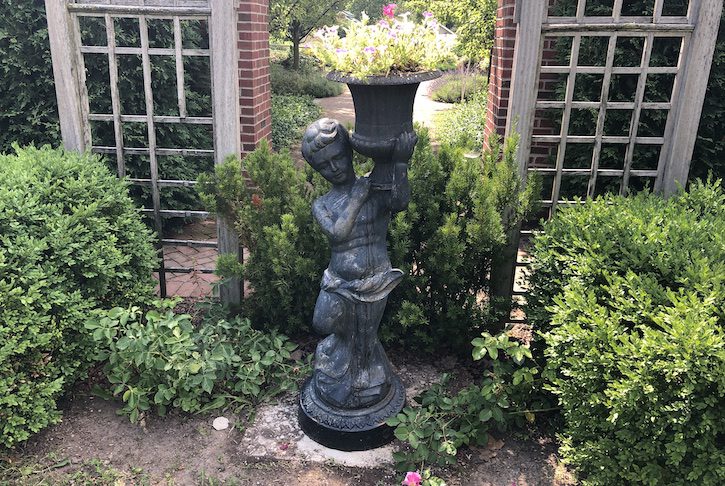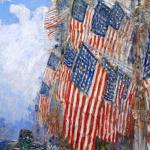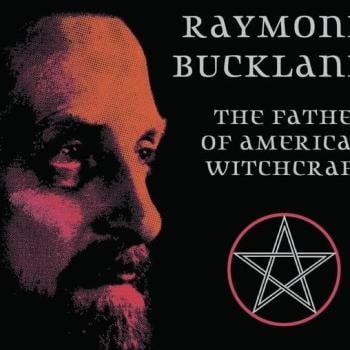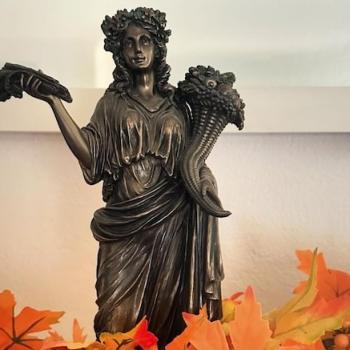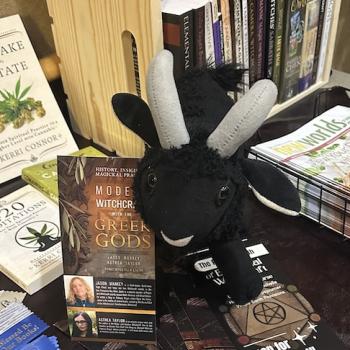When debates consume small parts of the online Pagan Community, it’s generally because someone has chosen to write or speak in absolutes. Absolutes can take many forms. Sometimes they involve a person speaking for a deity (“my Goddess told me you all are wrong”), and sometimes they involve statements claiming a deity is a particular way, and that any other sort of experience is false. You know an absolute when you see it, and generally absolutes limit deities, traditions, and Paganism as a whole.

It’s easy to fall into the hole of absolutes, and I’ve done this before. A few months ago I wrote that “Wiccan-Witchcraft is a magickal religion.” I very much do think Wiccan-Witchcraft is a magickal religion, and not a nature or fertility religion, but that’s what I believe and it’s not fair for me to put those beliefs on someone else. I should have written “For me, Wiccan-Witchcraft is a magickal religion,” but I didn’t and I put my foot in my mouth (like I’ve done so many times before).
While I’m not a fan of absolutes, I am a fan of facts, and the two things are very different. “Pan was first worshipped in Arcadia” is a fact, we know that he was first worshipped in Arcadia because of archeological evidence and certain Greek writings. Facts are true of most every deity. There is no harm in writing “The Greeks worshipped Apollo as such and such” and then including a citation. And yes, citations are important in the Pagan blogosphere, because the people who congregate here are smart, and they will eat you alive for making a mistake, even if it’s an honest one.
Deities speak to us, but I’m not sure deities need us to speak for them. They are goddesses and gods after all, with more power than you or I. If they were truly angry about how they were being portrayed and worshipped I have to assume they’d stop that sort of worship, or set up counter-points to it. I find it funny that those who often speak the loudest about “the gods having agency” are the same ones who often wish to limit that agency.
In ancient Greece Hekate was not pictured as a crone, but that changed in the 20th Century, and she’s often depicted in such a fashion today. Some people are very offended by this, while others are not. Since it’s a depiction I see with some frequency today, I’m going to assume Hekate is fine with it, or at least is not bothered by it. If she were I figure she’d stop such depictions.
In ancient Greece, Pan was known for heavy drinking and some extremely bad behavior. In the 19th Century he began to be written about as the god of the English countryside, and as a way for human beings to connect with the natural world. I have always assumed that this was something he chose to do. Why would anyone limit deity to only what they were 2000 years ago? Would you like to be limited only to what you were 20 years ago? If we think, we progress. Even my cat is not the same girl she was eight years ago.
Speaking in absolutes is an increasingly large part of Witchcraft, especially online. Absolutes in Witchcraft are especially vexing because there is no one who speaks for all Witches. One of my least favorite Witch absolutes is “Wichcraft is not a religion,” even though to many of us it most certainly is a religion. But just because I feel that way doesn’t mean everyone else feels that same way, or that I want to everyone to agree with me. I don’t really care if people think it is (or is not) a religion, I’d just prefer people not limit my beliefs (or yours for that matter).
I have never felt like “working with the dead” is a major part of my Witchcraft practice, but many who do such things often write of working with the dead as an absolute in Witchcraft. Witches are generally all not one way or another, it’s a large community with a variety of practices, and what’s important to me many not be important to you. Despite what Facebook would have you believe, I think that’s generally fine, and that our differences should be mostly celebrated and embraced, not used as a purity test for one’s Witchcraft practice.
Often times absolutes are set up to guard a certain boundary or perimeter. “There can be no Christian-Witches” is an example of an absolute set up in order define and limit what Witchcraft can be. While I have some sympathy for those making that argument, it’s untenable position. Christians have been executed and persecuted for “witchcraft” in large numbers since the 1400’s, and the with the tendency to define most magick users as “witches” in some parts of our community, I think it’s obvious that have been Christian witches in the past, nad most certainly people identifying with both Christianity and Witchcraft in the present. Do those who speak in such absolutes have the authority to take one’s Witch card? (Are there even Witch cards.)
There are perhaps certain absolutes that come with the practice of a tradition, but the absolutes in such instances only apply to the tradition. No one tradition speaks for all Witches and Pagans, and when it comes to issues of theology that’s generally left to the practitioner. I can read the rituals of Alex Sanders, but just using his rituals is not going to tell me what he truly believed about the higher powers in ihs life. Witchcraft and Pagan traditions have generally been for thinkers, there’s no need for an Apostle Paul to tell us what to believe, because we can generally figure that out for ourselves.
If you are someone who writes in absolutes, remember that there’s a wide world of Witchcraft and Paganism out there, and we all don’t think like you do. And for those of us who decry absolutes, remember that most people in our community are well aware that no one speaks for all of us. Be good to each other.


